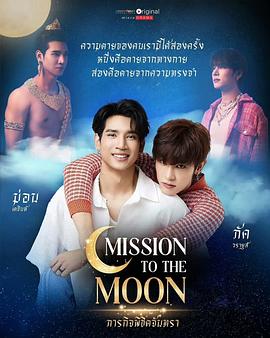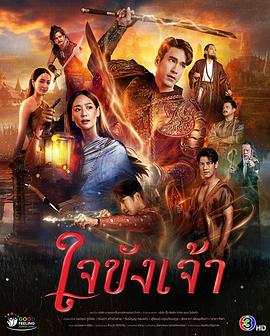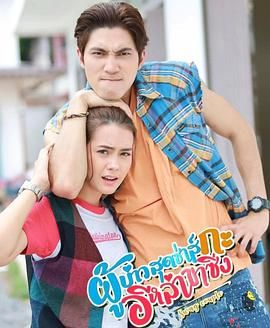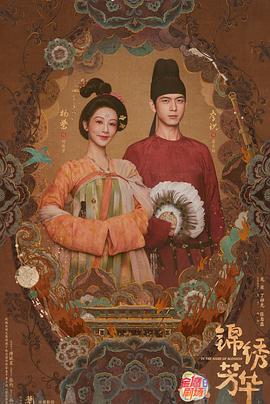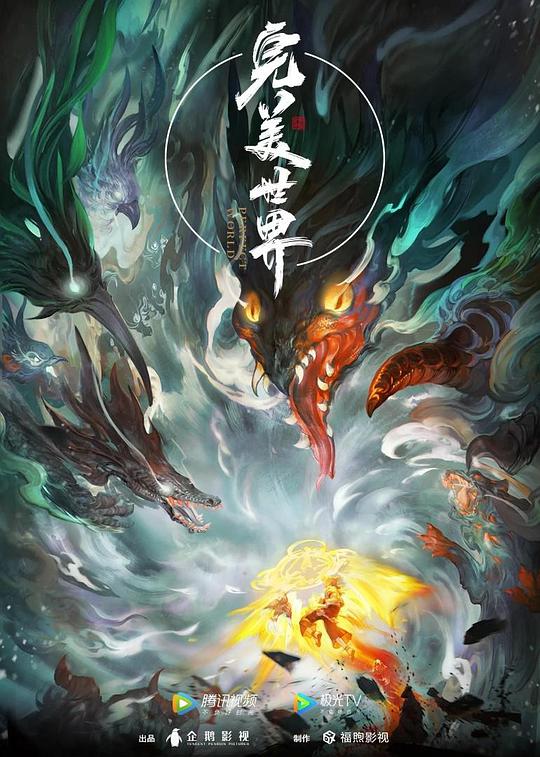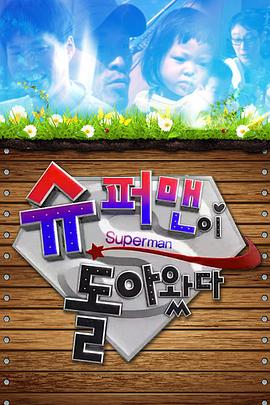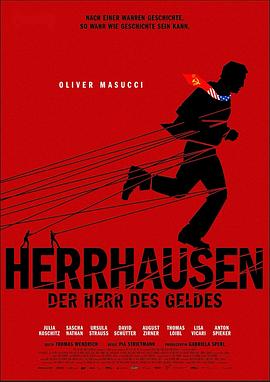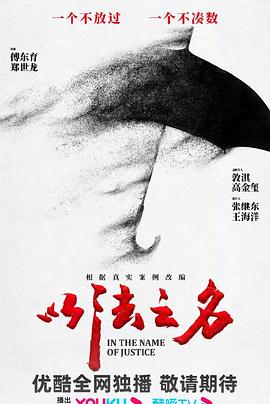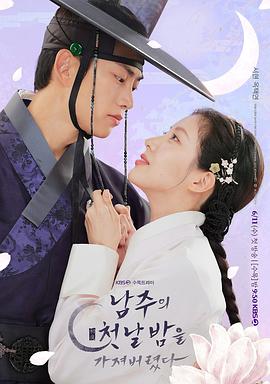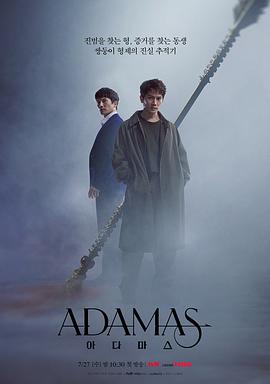
在线观看
播放节点列表
腾讯云
16
喜欢看“Adamas”的人也喜欢
2025
泰国剧
泰国
泰国
好的品味可能会给我们带来美好的生活,但好的品味是有代价的。下一代青少年的混乱故事。Whengoodtastemayleadustogoodlife,butgoodtastehasapricetag.T
泰语
2025
泰国剧
泰国
泰国
新闻主播Pathapi(Krist饰)因工作丑闻而身败名裂,公司请来海归制片人帮其转型,谁知新来的制片人Thantawan(Singto饰)就是Pathapi的旧恋人,他们的工作和情感又会经历什么样的
泰语
2025
泰国剧
泰国
泰国
廷纳功·普瓦萨迪翁 夏恩 夏得 蓓斯·诺拉塔普·侬塔拉特 高特·卡尼狄索睿恩·莱瓦拉空然 Dan Kreangsak Muangsaen Big Gulpss Joh Raachathorn 廷拉萨克·考阿佑德迪
9NAA Production推出项目《IPromiseIWillComeBack我等你》 从一位年轻的主持人、一位演员到第一个Y系列的组织者的舞台。
其它
2025
泰国剧
泰国
泰国
未知
Niraon marries to save her home, but her husband is shot. She’s forced to marry his brother whose he
泰语
2025
泰国剧
泰国
泰国
泰语
2025
泰国剧
泰国
泰国
好的品味可能会给我们带来美好的生活,但好的品味是有代价的。下一代青少年的混乱故事。
泰语
2025
泰国剧
泰国
泰国
泰语
2025
泰国剧
泰国
泰国
新闻主播Pathapi (Krist饰)因工作丑闻而身败名裂,公司请来海归制片人帮其转型,谁知新来的制片人Thantawan (Singto饰)就是Pathapi的旧恋人,他们的工作和情感又会经历什么
泰语
2025
泰国剧
韩国
韩国
韩语
2025
泰国剧
美国
美国
汤姆·斯图里奇 波伊德·霍布鲁克 薇薇恩·阿昌庞 珍娜·科尔曼 乔莉·理查德森 卢瑞·奥康纳 弗莱迪·福克斯 克里夫·罗素 劳伦斯·欧弗林 安·斯凯利 道格拉斯·布斯 杰克·格里森 茵蒂娅·摩尔 史蒂夫·库根 埃斯梅·科里德-米尔斯 艾德里安·莱斯特 巴里·斯隆 柯尔比·豪威尔-巴普蒂斯特 梅森·亚历山大·帕克 多娜·普雷斯顿 帕顿·奥斯瓦尔特 格温多兰·克里斯蒂 妮芙·沃尔什 费迪南德·金斯利 斯蒂芬·弗雷 阿西姆·乔杜里 瓦内苏·萨穆尼耶 拉扎内·贾马尔 桑吉夫·巴哈斯卡 妮娜·瓦迪娅 舒雅德·法瑞斯
梦之王震撼回归!
英语
2025
泰国剧
韩国
韩国
韩语
韩语
泰语
与“Adamas”关联的视频
2025
国产剧
中国大陆
中国大陆
金瀚,宣璐,徐洋,天爱,邹廷威,王煜,骆言,陈康,唐旭,房子斌,杨紫嫣,马丽,闫勤,刘威,张铎,刘交心
讲述了海军陆战队中队长伍肆(金瀚饰)与记者唐歆(宣璐饰)之间曲折动人的故事。唐歆在一场采访工作中初遇伍肆,对那个迷彩身影念念不忘。得益于家人的安排,两人很快重逢在一次连哄带骗的相亲局上。立志“不嫁军人
汉语普通话
2025
国产剧
中国大陆
中国大陆
杨紫,李现,魏哲鸣,张雅钦,涂松岩,管乐,许龄月,沈梦辰,佟梦实
长安城里芳园每日熙来攘往,门庭若市,即便屡遭县主李幼贞掣肘,依旧屹立不倒。万国来朝时,芳园之主何惟芳临危受命,于风雪中盛放牡丹,尽显国色芳华,一时声名大噪。经商致富之梦眼看就要成真,却又突闻母亲去世真
汉语普通话
2025
国产剧
中国大陆
中国大陆
李一桐,刘宇宁,祝绪丹,王以纶,王佑硕,昌隆,吕行,张垒,黄维德,王艳,郑国霖,陈紫函,贾景晖,王成思,苏梦芸,王丽娜,李卿,郭笑天,凌美仕,宋继扬,吴弘
当意外穿越进剧本世界,成为被反派男主用完即弃、凌虐致死的女主角应该怎么办?宋小鱼想都不用想,当然是能跑多远跑多远啊。计划如此丰满,现实却无比骨感,一旦她试图改变剧情和男配成婚,就会自动跌入无限流循环卡
汉语普通话
2025
大陆综艺
中国大陆
中国大陆
10位渴望爱情的单身男女共同入住「恋恋小屋」,他们中某些人将与意难平的前任重逢,重新审视自己的感情需求,探索与前任复合或开启新恋情的可能性,在爱与成长、遗憾与释怀的交织中,寻找理想爱情归宿。
国语
2025
国产剧
中国大陆
中国大陆
刘旭威,娜一,祁忆,生港帅
讲述了前来调查水患的温肃(刘旭威饰),意外救下了因家贫被献祭河伯的乡野少女陈宝银(娜一饰)。宝银为给阿娘治病主动离家,几经周折后被卖到温家做下人;而另一边,温肃虽喜得状元却突然家道中落。面对命运的捉弄
汉语普通话
2025
泰国剧
泰国
泰国
安东尼·布伊塞雷,普威·丹萨优,普鲁迪猜·鲁艾富潘特,Boom Saharat Thiempan,苏查妲·颂潘,瓦西塔·赫尔梅瑙,Obey Pun
好的品味可能会给我们带来美好的生活,但好的品味是有代价的。下一代青少年的混乱故事。Whengoodtastemayleadustogoodlife,butgoodtastehasapricetag.T
泰语
2025
韩国剧
韩国
韩国
韩语
2025
欧美剧
美国,英国
美国,英国
汤姆·斯图里奇,波伊德·霍布鲁克,薇薇恩·阿昌庞,珍娜·科尔曼,乔莉·理查德森,卢瑞·奥康纳,弗莱迪·福克斯,克里夫·罗素,劳伦斯·欧弗林,安·斯凯利,道格拉斯·布斯,杰克·格里森,茵蒂娅·摩尔,史蒂夫·库根,埃斯梅·科里德-米尔斯,艾德里安·莱斯特,巴里·斯隆,柯尔比·豪威尔-巴普蒂斯特,梅森·亚历山大·帕克,多娜·普雷斯顿,帕顿·奥斯瓦尔特,格温多兰·克里斯蒂,妮芙·沃尔什,费迪南德·金斯利,斯蒂芬·弗雷,阿西姆·乔杜里,瓦内苏·萨穆尼耶,拉扎内·贾马尔,桑吉夫·巴哈斯卡,妮娜·瓦迪娅,舒雅德·法瑞斯
梦之王震撼回归!《睡魔》第2季第1辑7月3日上线,第2辑7月24日上线。
英语
2025
爱情片
中国大陆
中国大陆
,刘美伦
讲述了初中女生小满从一个懵懵懂懂的少女迅速“进化”成魅力四射的明星,并从这一连串旋风般的事件中了解了明星光环背后的压力与代价,体会到友谊的真正含义。小满和她的朋友们为彼此相互保守着秘密,为了心中的梦想
普通话
2025
悬疑片
中国大陆
中国大陆
朱永棠,罗琳,沈保平,佟小虎
幽冥镇活人骤变,獠牙滴血,变僵尸。狄仁杰探查发现,幽冥教以蛊虫控尸,幕后黑手竟是越王李贞!其欲炼"僵尸大军"谋反。危急时刻,狄仁杰以雄黄烈火阻尸潮,亢龙锏斩尸王。最终蛊母爆亡,僵尸
汉语普通话
2025
国产剧
大陆
大陆
张新成,宋祖儿,王彦霖,任程伟,张月,何雨虹,刘奕铁,王影璐,吴超,高露,刘钧,朱雨辰,刘奕君,李佳航,王凯,杨采钰,杨烁,练练,吴玉芳,周铁男,薛昊婧
上世纪九十年代末,留学德国的柳钧回到家乡东海,他顺应时代发展,立志将父亲的老机械制造厂改造成科技领先的现代化制造厂。民企在技术、资金、人脉等各方面都遇到重重困难,举步维艰,但好友钱宏明的进出口贸易、房
国语
2017
香港剧
中国香港
中国香港
刘丹,梁证嘉,陈俊坚,郑恕峰,黄颖君,李泳豪,欧瑞伟,邱芷微,曾敏,利颖怡,曾健明,谢芷伦,王俊棠,卢宛茵,李靖筠,李绮雯,李美慧,李伟健,何启南,汤盈盈,梁雯蔚,单立文,温裕红,曾守明,姚莹莹,区霭玲,陈嘉辉,黎彼得,黄子雄,秦启维,方绍聪,卢峻峯,徐玟晴,罗鸿,张诗欣,杨秀惠,郑世豪,樊亦敏,许思敏,萧徽勇,杜大伟,滕丽名,苏恩磁,罗乐林,袁文杰,炜烈,张明伟,邓英敏,张美妮,陈荣峻,李亦乔,吕慧仪,马贯东,简淑儿,陈嘉慧,潘冠霖,张汉斌,吴香伦,钟志光,陈嘉慧
處境劇的御用監製羅鎮岳已經準備開拍新一套處境劇,暫定叫《愛.回家之開心速遞》,「過往的處境劇都是以家庭為主,今次當然不例外啦。而故事除了家庭,因為網購現在都好hit,就會講到一間百貨公司,入面開設的網
粤语
2013
日韩综艺
韩国
韩国
tablo,秋成勋,李辉才,张铉诚
kbs最新推出的亲子综艺(快乐星期天),内容为父亲带着孩子,在没有妈妈的情况下度过48小时现4位父子。参演艺人:为秋成勋与女儿tablo与女儿张铉诚的儿子们李辉才的双胞胎儿子收视率分布:131103K
韩语
2024
海外剧
德国
德国
Olivier Masucci,Julia Koschitz,David Schütter
Inthe1980s,withGermanydividedbetweenEastandWest,AlfredHerrhausen,avisionarybankerontheboardofdirecti
德语
2025
香港剧
中国大陆,中国香港
中国大陆,中国香港
陈小春,李治廷,韩雪,任达华,何润东,熊黛林,李丽珍,黄嘉乐,张国强,伍咏薇,吴嘉龙,汤加文,成家宏,隋凯,陈惠敏,汤镇业,李子雄,艾威
老中青三代热血“守诚者”勇毅冲锋,诠释跌宕起伏“中国香港警察故事”。
汉语普通话,粤语
2025
国产剧
中国大陆
中国大陆
刘学义,孟子义,高寒,刘令姿,边程,范静雯,赵顺然,代斯,王艺瑾,衣云鹤,王伟华,黄梦莹,张垒,漆培鑫,王佳璇,许静雅,朱戬,邵伟桐,王雅佳,闫玉晨,李芳硕
“当朝左相”沈在野因他人计谋被迫迎娶和亲公主姜桃花,沈在野表面上是一个奸佞丞相,实则一心为国为民为天下;姜桃花为保小命绝境求生,两人互斗过,合作过,在一次次的危机中暗生情愫……剧集根据白鹭成双小说《桃
汉语普通话
2025
国产剧
中国大陆
中国大陆
张译,李光洁,蒋欣,刘佳,冯嘉怡,丁勇岱,杨烁,施京明,王劲松,是安,任重,郝平,白冰,董晴,徐梵溪,毛俊杰,宋熹,赵煊,金泽灏,章煜奇,田昊,姬他,颜世魁,林鹏,潘之琳,吴其江,赵梓冲,王艺荻,艾东,纪帅,孙强,宋楚炎,朱元浩,周劢劼,詹明君,黄义威,方晓莉,刘冠成,陈创,张思潼
本剧讲述了海东省检察院检察官洪亮、郑雅萍等人在复查东平市“万海黑社会性质组织案”过程中发现司法人员在案件中的徇私枉法。他们以举报线索为突破口,彻底打掉了背后的黑恶势力,同时查办司法工作人员的职务犯罪。
汉语普通话
2025
香港剧
中国大陆,中国香港
中国大陆,中国香港
陈小春,李治廷,韩雪,任达华,何润东,熊黛林,李丽珍,黄嘉乐,张国强,伍咏薇,吴嘉龙,汤加文,成家宏,隋凯,陈惠敏,汤镇业,李子雄,艾威
老中青三代热血“守诚者”勇毅冲锋,诠释跌宕起伏“中国香港警察故事”。
汉语普通话,粤语


